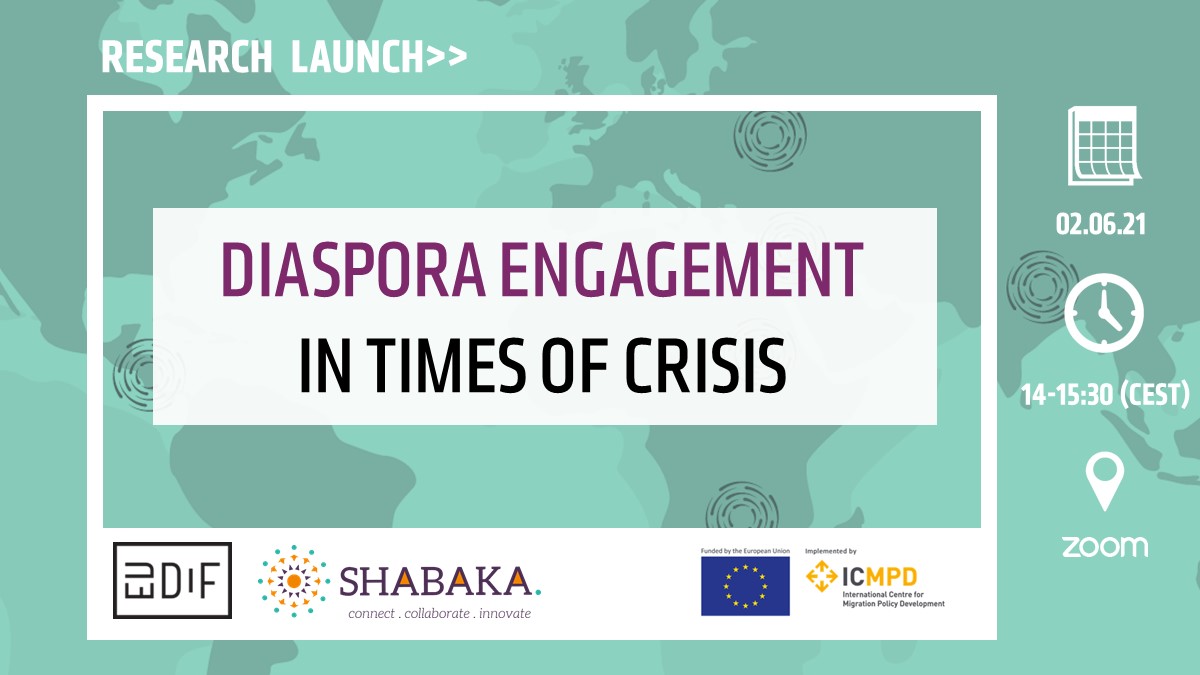
Join us on the 2 June to discuss the findings of our research into diaspora engagement in times of crisis. We will be joined by our research partner, Shabaka, and other guests to exchange on the cases studied and recommendations generated.
At EUDiF we strongly believe in the importance of up-to-date research to guide policy making and programming. With this in mind, in the peak of the Covid-19 pandemic, we launched a research project to explore how diaspora engagement takes place in different crisis contexts and help fill the knowledge gaps about diaspora responses to humanitarian crises.
Diaspora-research specialists Shabaka looked at six crises from Nepal, Nicaragua, Lebanon, Sudan, Ukraine and Zambia in order to understand the trends according to regional and crisis-context. The resulting publication provides a wealth of information on each case and connects the dots between them in order to generate recommendations to the different actors in humanitarian-response on how to collaborate with diaspora in order to maximise impact.
We will discuss the findings of the research with Shabaka and guest speakers with experience of the cases on 2 June, 14:00 – 15:30 (CEST). Join us for this timely and dynamic discussion:
A short version of the report is now available in our library; it includes the executive summary and recommendations. The full report – including details on each of the six cases studied – will be published after the webinar
Webinar speakers
On 2 June, we will be joined the European Commission’s Directorate General for International Partnerships (DG INTPA) who commissioned the research and funds the EUDiF project. As well as EUDiF and Shabaka, we are pleased to announce our guest speakers:
- Amel Karrar, Secretariat for Sudanese Working Abroad (SSWA)
- Alexandra Singpiel, Co-Coordinator, DEMAC-Diaspora Engagement Action & Coordination, speaking on Ukraine
- Paddy Siyanga Knudsen, Migration Governance Analyst, speaking on Zambia